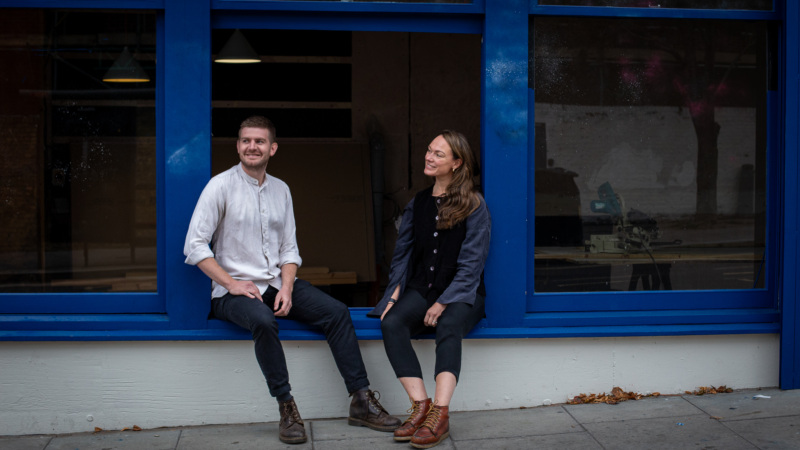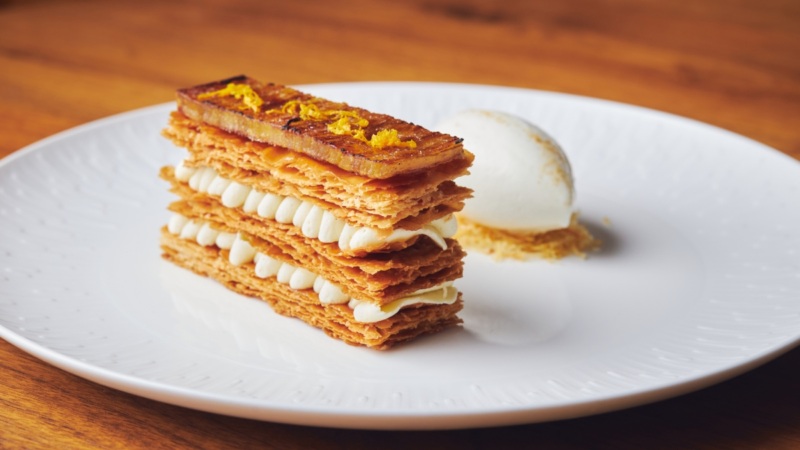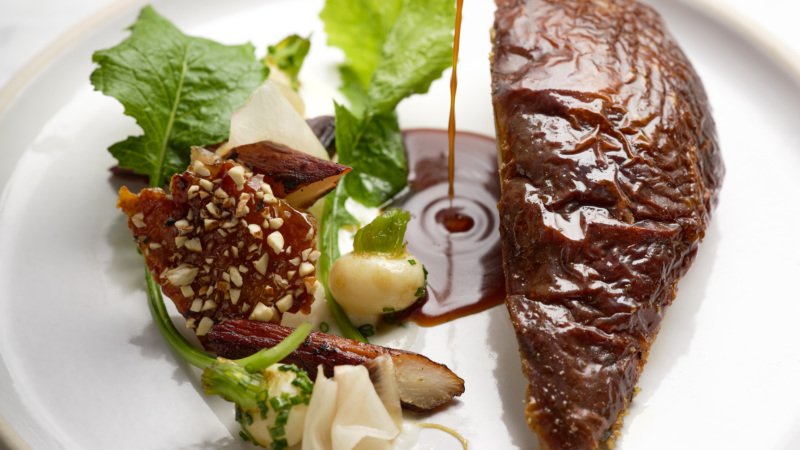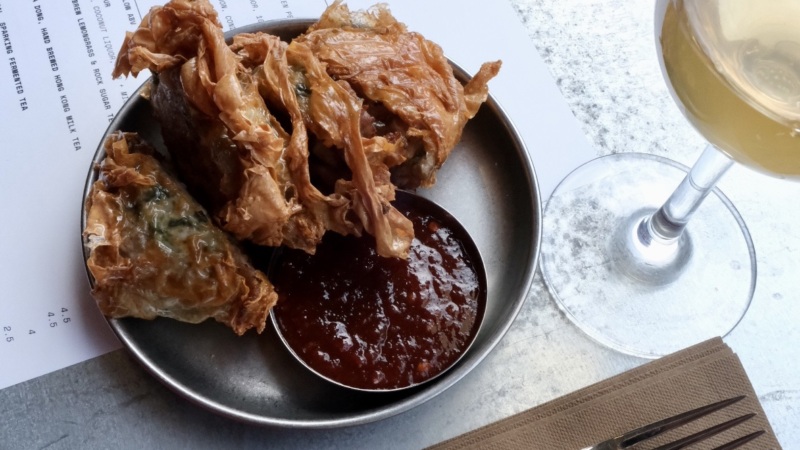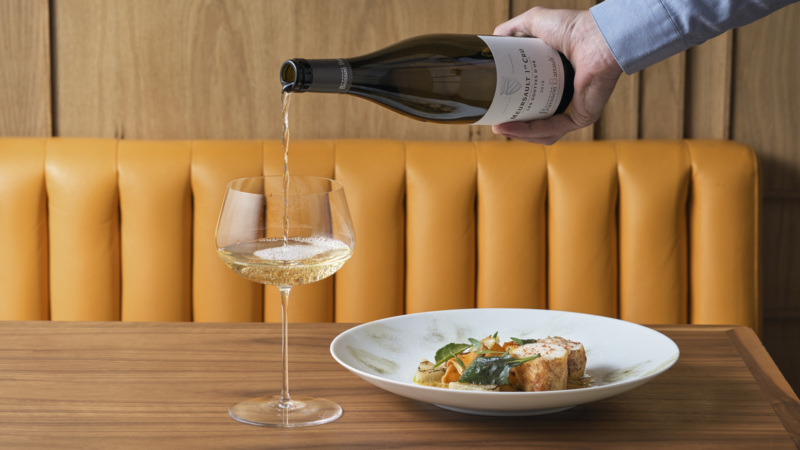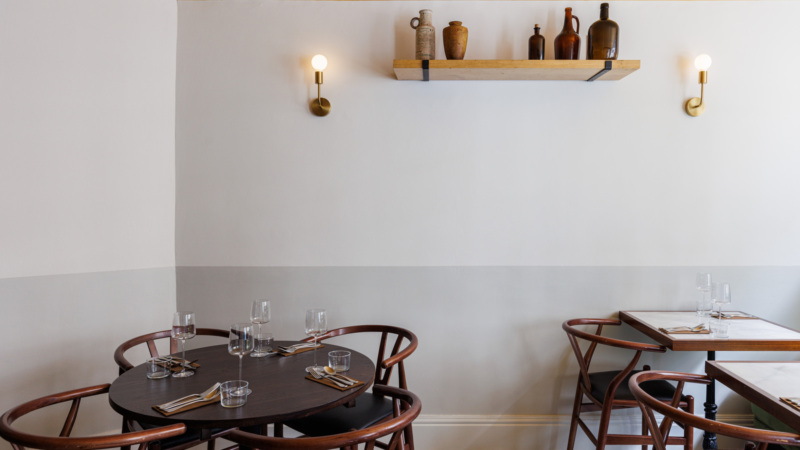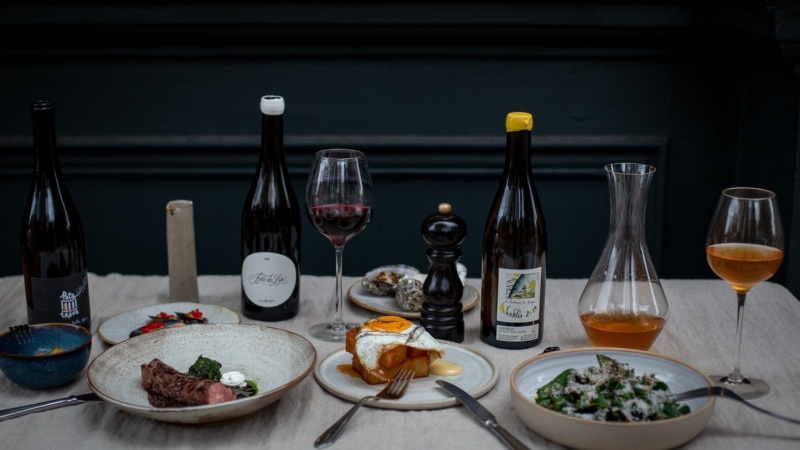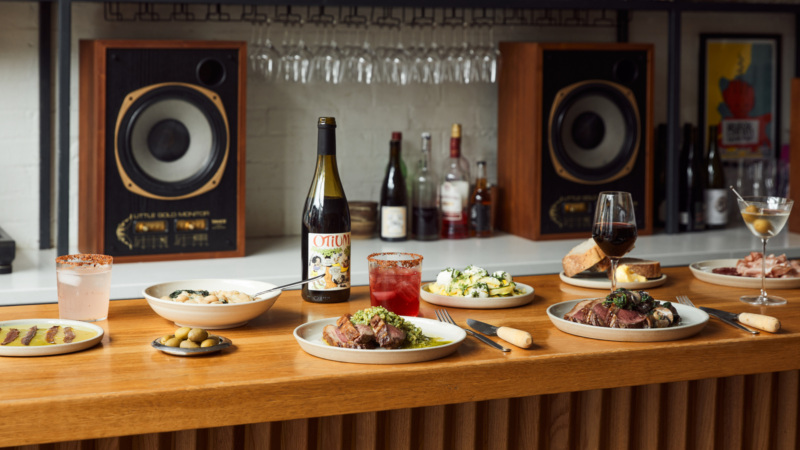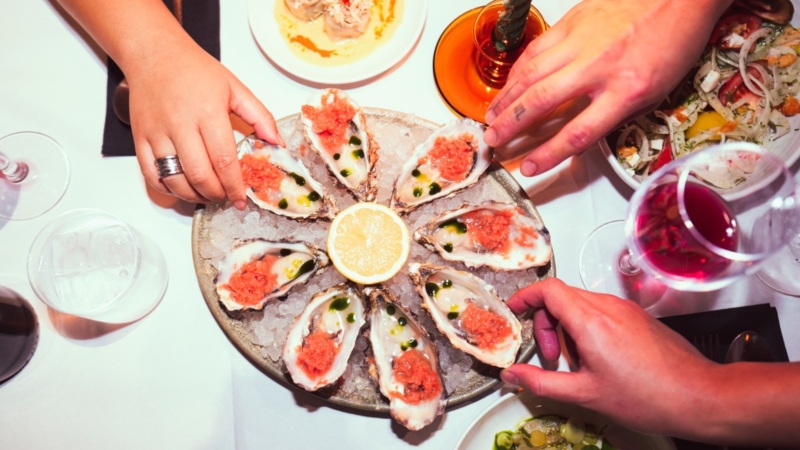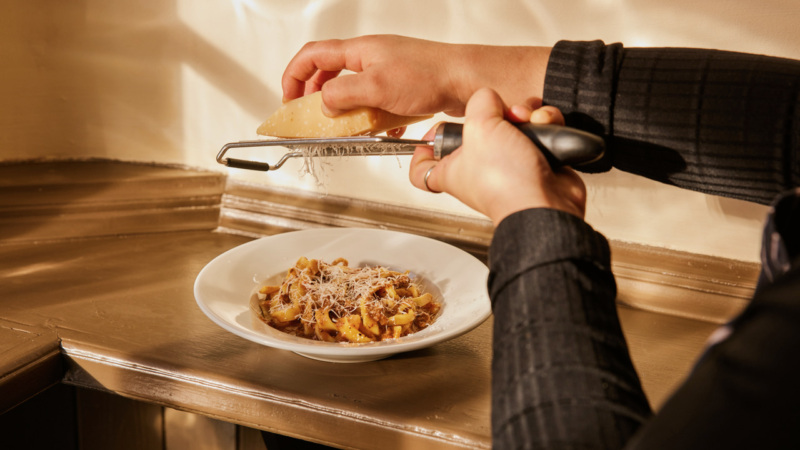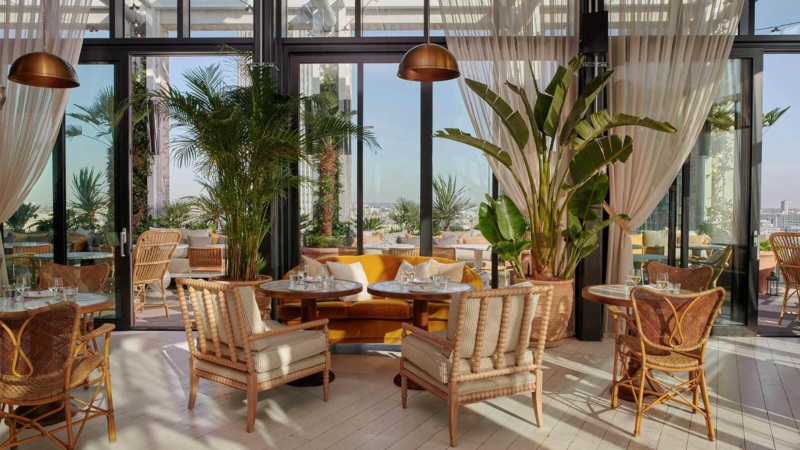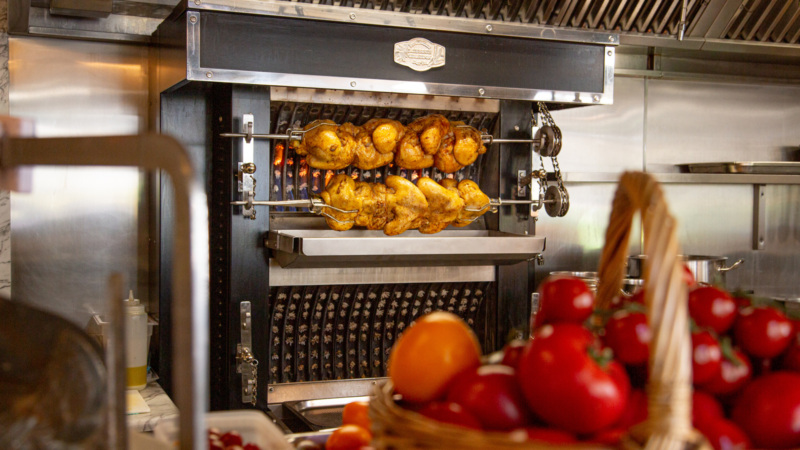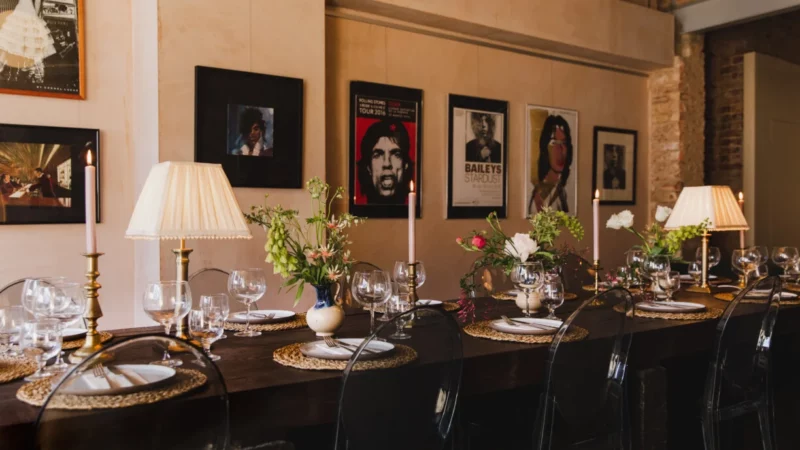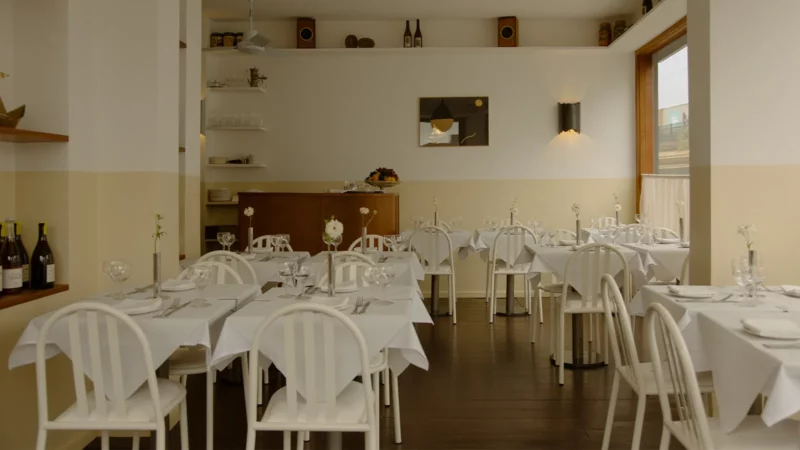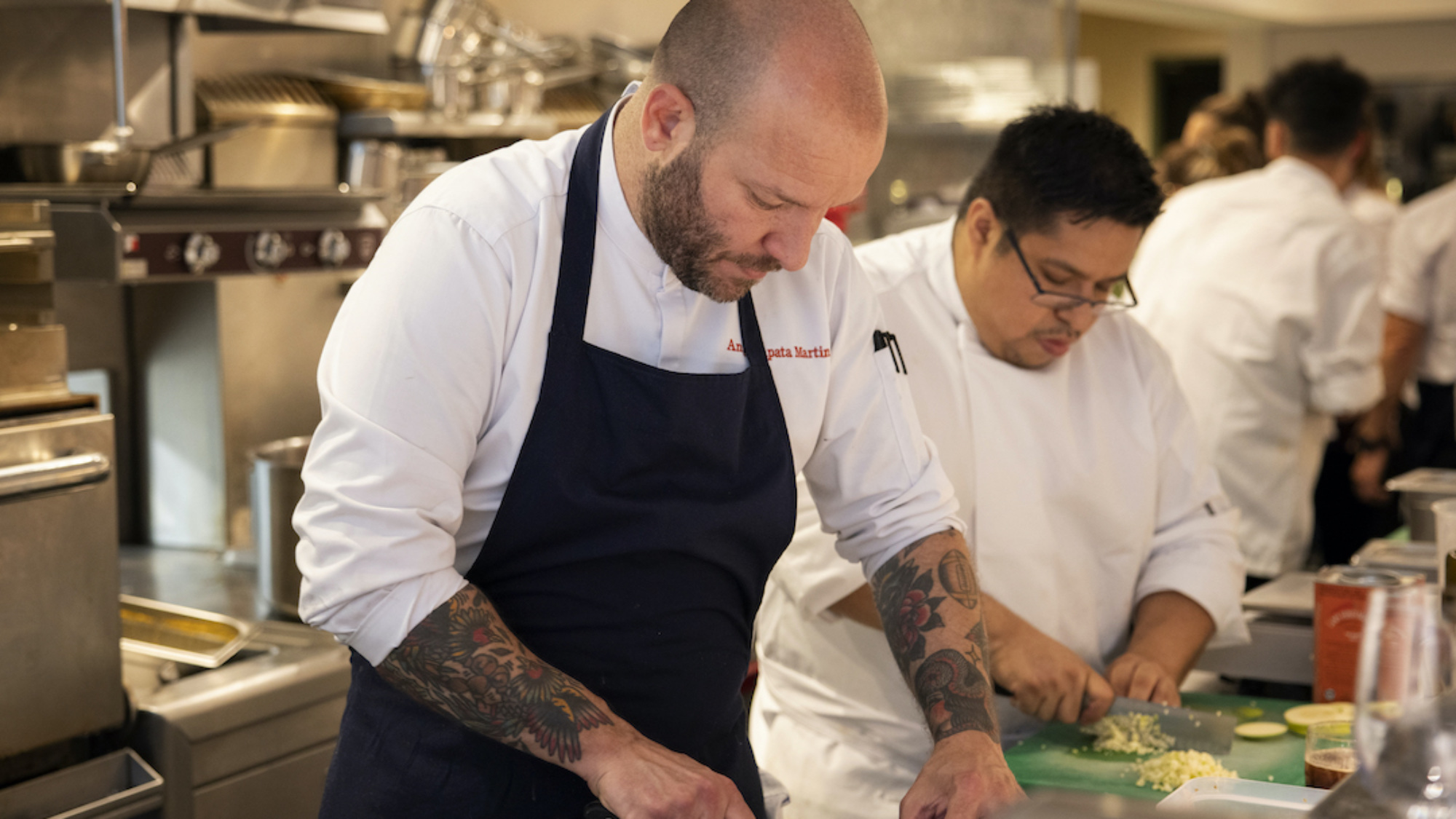
With Barrafina Invita, Angel Zapata Martin Gets to Spanish Cuisine’s Heart
Published:
Somewhere between a bocadillo at the beach and spherified olives et el Bulli, between sugar-dusted churros and a whole suckling pig, lies the truth of Spanish cuisine. It’s traditional; no, it’s avant-garde. It’s refined; no, it’s rustic. It’s comforting; no, it’s creative. What is certain is that it’s changing.
Here to explore exactly how is Michelin star-winning restaurant group Barrafina with ‘Barrafina Invita’ its new quarterly series that will see Barrafina’s chef director Angel Zapata Martin invite the best chefs in Spain (and chefs cooking Spanish food), from Michelin star big hitters to under-the-radar talents, into his kitchen at Borough Yards to cook for two nights each.
The first in the series will take place on March 7th and 8th, with Barcelona’s Xavier Pellicer, a headline name in Spain. Once an upholder of tradition, Pellicer could now be described as a culinary disruptor, and as the first recipient of the ‘Invita’, is exactly the right fit.
That natural fit can be explained partly because he and Zapata Martin have a shared history as protégés of the late Santi Santamaria, a giant of Spanish gastronomy whose name is uttered in the same breath as Ferran Adrià and Juan Mari Arzak, but more so because of the visionary work that Pellicer is doing today, cultivating a plant-forward, health-focused cuisine that asks big questions about what Spanish food even is.
Zapata Martin is excited. “It’s going to be quite challenging. We could bring somebody who does something much more in the style of Barrafina. It would be easier, but I like this challenge, this very radical difference!”
“I knew Xavier when I first became a chef and what he was doing then and what he is doing now are completely different things,” says Zapata Martin, who worked for Santamaria (though not concurrently with Pellicer) for two years at El Racó de Can Fabes and later Ossiano in Dubai.
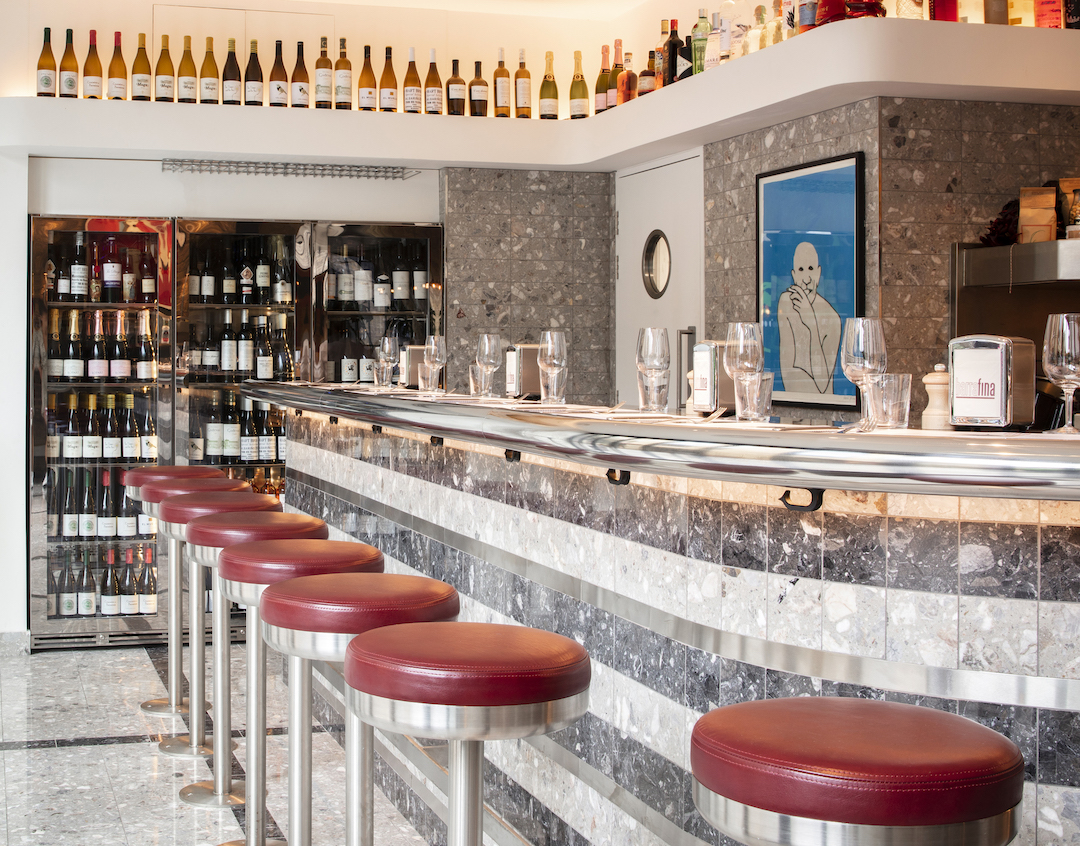
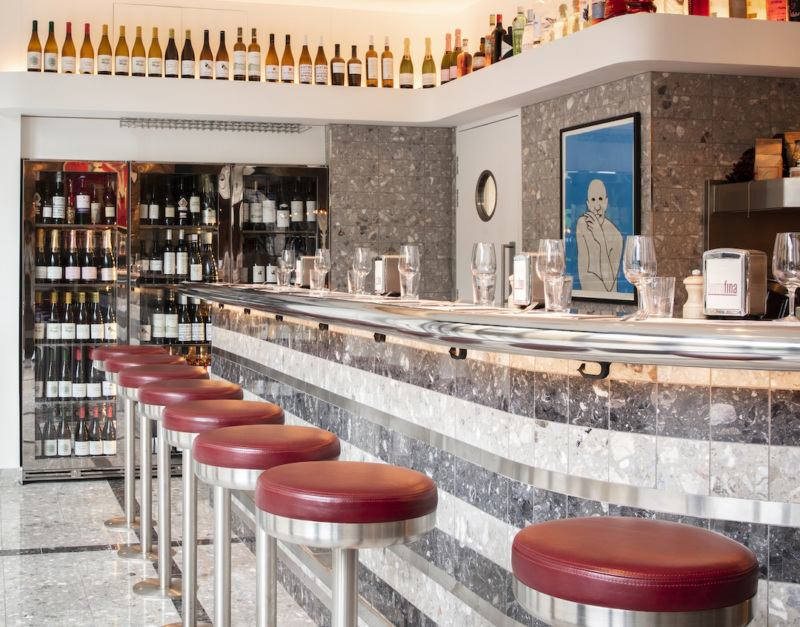
Pellicer began conventionally enough, receiving a French-oriented culinary training before becoming chef de cuisine at Santamaria’s restaurant El Racó de Can Fabes near Barcelona, the first restaurant in Catalonia to be awarded three Michelin stars. “The style was obviously very, very classic: table service, people finishing dishes in front of the guest, very old school.” Everything changed with his discovery of biodynamic agriculture and ayurveda. He left the Michelin stars behind to pursue his own vision, that of a cuisine where that balanced the “the pleasure of ingestion and the wellbeing of digestion.” He styles his restaurant a ‘Healthy Kitchen’.
“You will see two or three of our head chefs cooking during those events for our audience, and that’s very unique as well. We are so busy all of us, so it’s going to be great to spend time together, to bond, have fun, and from a culinary point of view to see a lot of fresh ideas. The idea is to create the atmosphere we create every day but with the addition of something unique.”
“What he does is very unique,” says Zapata Martin. “I cannot even explain it the way he can because it’s something very personal to him. It’s very much for him to talk about these things when he comes.” The menu is yet to be finalised but diners can expect at least 70% vegetables – root, flower, leaf, and fruit, in keeping with biodynamic principles. “With some of the chefs we are going to do a collaboration menu. With Xavier, I just told him “You know what, you create your thing”.
It’s interesting to show Barrafina to Spanish people and chefs, for them to see the success of a concept that is so Spanish. It’s a very interesting thing to create something so authentic so far from your hometown.— Angel Zapata Martin
Zapata Martin sees Barrafina Invita as a chance to get deeper into Spain’s diverse food scene. “We classify Spanish food as tapas or casual food, a lot of family-style or sharing food which is fine but there’s also a bigger culture of refined food. For a very long time, it’s nothing new, it’s since the ‘80s and ‘90s when it was more about French cuisine, but Spain for a very long time has had this diversity.
There are a lot of places that we can call ‘casas de comidas’, something like bistros, that don’t have to be Michelin or very molecular. The opposite, they’re more about the tradition and produce and seasonality.”
“There are a lot of very interesting seafood places too. Places like Rafa Zafra’s Estimar [Zafra worked for the Adrià brothers, and now has restaurants in Barcelona in Madrid] and Aponiente with Angel Leon [a Michelin three-star seafood restaurant in Cádiz]. There is also a lot of cooking over fire. There are a lot of different concepts but that aren’t formal but use very high techniques. There’s also some very interesting fusion cooking happening now, with chefs influenced by Asian and Japan for example. For Spanish people it was not very common to go out of Spain but I think in the last 25 years ago, more people have travelled and explored different cultures.”
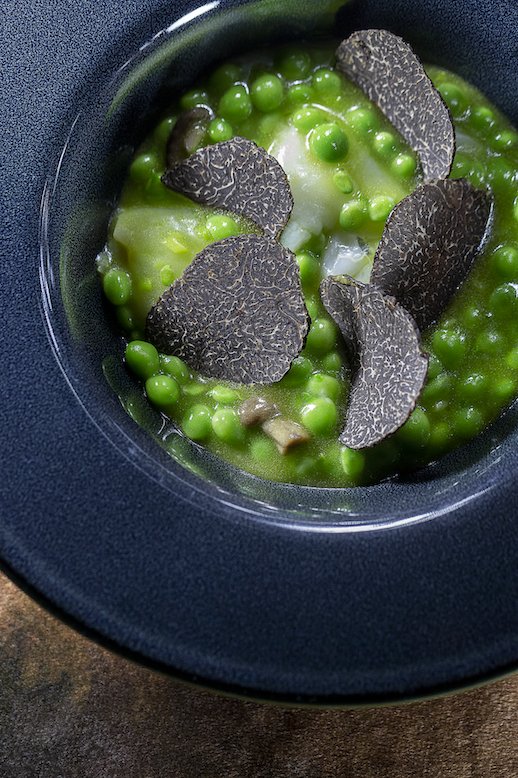
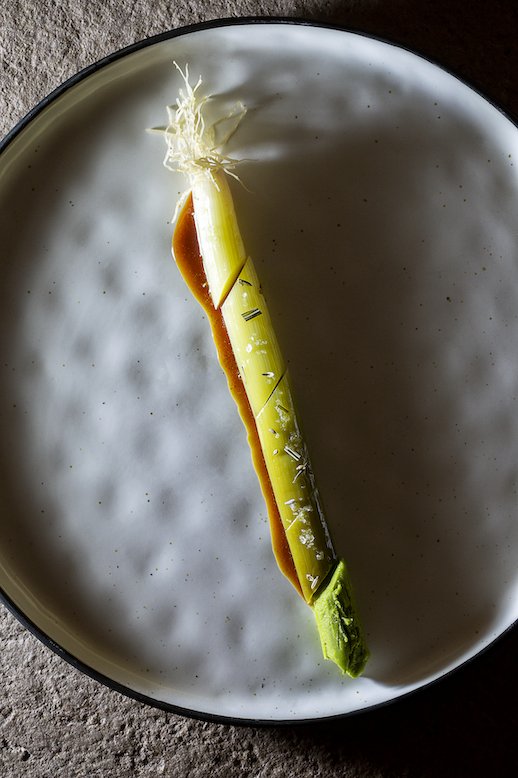
So, why Invita?
“Many restaurants do guest chef series, and for all of the reasons we’re doing it,” says Barrafina’s MD Anna Watkins. “It’s exciting, it’s inspirational, and it’s great for customers to have a different perspective. The reality is it’s also as much to inspire our own chefs in Barrafina. The fun of the collaboration for them is that they might be inspired to actually cook those dishes themselves and further down the line, maybe it will influence some of our specials.”
“Angel’s brain is fizzing, thinking about all these chefs he wants to work with,” says Watkins. “It’s an eclectic bunch. The chefs we’re approaching range from ones doing plant-based and nose-to-tail Spanish cooking right up to some Michelin star big hitters. It may be that we find an incredible chef or a small restaurant that’s just started up that doesn’t have any Michelin stars. What Angel and I are really united about is that we don’t want it to be a formula. We want it to be playful. We want to have fun and not necessarily go for the big names above the door to get the punters in.”
The exchange of ideas is two-way. Zapata Martin is thrilled to introduce his Spanish peers to Barrafina. “It’s very interesting to show Barrafina to Spanish people and Spanish chefs, for them to see the success of a concept that is so Spanish, how you almost feel like you are in Spain. It’s a very interesting thing to create something so authentic so far from your hometown.” Even at a geographical remove from its spiritual home, the restaurant has become part of the global evolution of Spanish cuisine.
It’s perhaps the authenticity, the sheer “Spanishness” of Barrafina, that makes it the ideal setting to explore the subject with Invita. Here it is with its familiar marble counter, the row of stools, the bottles of sherry, and those impeccable croquetas – Barrafina has been a steady presence on the London scene since 2007 – so confident in its own identity that it can crack it wide open.
“We want to bring some dynamics into the brand,” says Zapata Martin. “We want to bring in people who inspire, who can bring in new trends and new ways of seeing hospitality.”
Xavier Pellicer will be cooking a special set menu at Barrafina Borough Yards on the evenings of 7th and 8th March. Book here.
Hilary Armstrong is a London-based journalist and editor. Follow her on Instagram and Twitter. Follow Resy, too.
